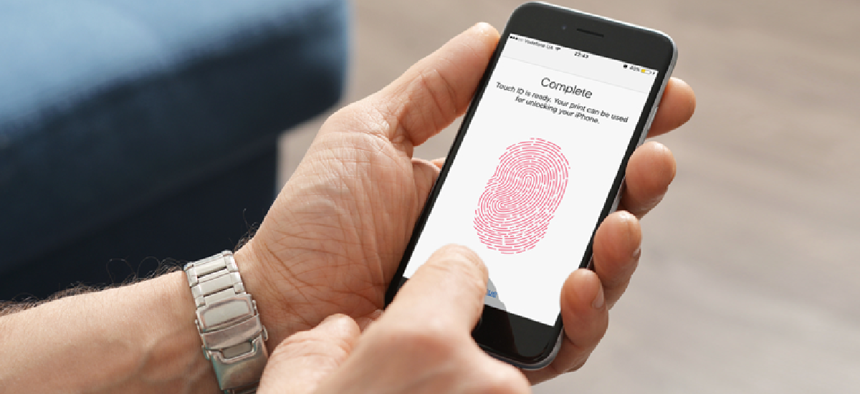Unlocking iPhones at $50 a pop


Connecting state and local government leaders
As mobile-phone encryption becomes more sophisticated, law enforcement agencies are looking to new low-cost tools for unlocking devices.
As security and encryption for mobile devices grow more sophisticated, the same techniques that keep users' data secure also make it nearly impossible for law enforcement to examine the contents of a phone without the user's permission. Even if the phone's manufacturer agrees to help officials unlock the phone, unencrypted data may not be available.
Law enforcement officials have pressed manufacturers to include "backdoors" or responsible encryption into phones, but computer scientists and cybersecurity experts argue there is no way to satisfy those demands without also reducing security barriers for hackers and nation states. Other solutions include high-priced hiring consultants, like the one that reportedly unlocked the iPhone of the San Bernadino shooter for $900,000.
Now, however, a new product from Grayshift promises to unlock iPhones for as little as $50 per device. The device, called Graykey, has already attracted the attention of at least three federal agencies, and at that price point could be an option for virtually any federal, state or local law enforcement agency.
Motherboard reported on March 24 that the State Department issued a purchase order for GrayKey on March 6 for $15,000. According to the cybersecurity firm Malwarebytes, the Grayshift's $15,000 offering allows a customer to unlock up to 300 phones. There is also a $30,000 option that does not cap the number of unlockings.
Public records also show that the Drug Enforcement Administration and FBI are also looking into GrayKey and similar iOS hacking tools. On March 8, both agencies issued separate requests for quotations looking for technology similar to GreyKey’s forensic workstation.
The FBI’s Electronic Device Analysis Unit determined the GreyKey forensic software meets the agency’s Computer Analysis Response Team’s mandatory requirements to “provide adequate capability against an ever-growing spectrum of mobile devices.” Since not all mobile devices use the same type of encryption, the FBI wrote in its justification of GreyKey that the company makes “several products” to “ensure mission success.”
The interest in GrayKey comes as federal officials are again calling for tech firms to build in ways for law enforcement to access encrypted mobile devices. Earlier this month, FBI Director Christopher Wray called his agency's inability to access the content of 7,800 devices during the 2017 fiscal year "a major public safety issue" that affected investigations.
In prepared remarks for the Boston Conference on Cyber Security on March 7, Wray said this number of devices doesn’t take into account state, local and foreign law enforcement agencies. “This problem impacts our investigations across the board -- human trafficking, counterterrorism, counterintelligence, gangs, organized crime, child exploitation, and cyber,” he said.
According to the New York Times, the administration "circulated a memo last month among security and economic agencies outlining ways to think about solving the problem."
Also last month, the National Academies of Sciences, Engineering and Medicine released a framework on when it makes sense to break encryption methods in an effort to force policymakers to consider security risks and unforeseen consequences as the result of breaking the encryption.
While the framework had input from a variety of academic institutions and company officials from Microsoft, Google and Intel, it doesn’t make up for the relatively little information that exists in case law when it comes to unlocking cellphones, Nate Cardozo, senior staff attorney for the Electronic Frontier Foundation, told GCN.
“Service providers are required to let law enforcement know about the capabilities of their devices under the Secured Communications Act,” Cardozo said. “Service providers also have the ability to voluntarily share information if there is a situation with a ticking time bomb like a kidnapping, but it is the Wild West when it comes to case law for unlocking phones.”
In November 2017, the Supreme Court heard oral arguments in Carpenter v. United States, which addressed whether the warrantless seizure and search of historical cell phone records to reveal the location and movements of a user are permitted under the Fourth Amendment. According to SCOTUSblog, the justices were conflicted on what to do with the case.
NEXT STORY: Oregon governor signs data breach law




